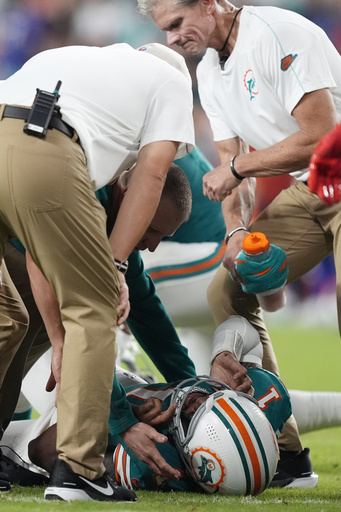The NFL has made significant strides in how it handles head injuries, moving away from the mentality of players ignoring concussions and returning to the game too soon. The reaction to Tua Tagovailoa’s most recent concussion highlights this evolution, with concerns now primarily focused on the player’s long-term health rather than when he will return to play.
Former players and experts are emphasizing the seriousness of head injuries and how they differ from other physical ailments that can be treated with surgeries. The increased awareness of brain injuries has led to the implementation of strict concussion protocols aimed at protecting players, with more education and guidelines in place to prevent players from risking their health.
The NFL and NFL Players Associations introduced concussion protocols in 2011 following an incident involving Colt McCoy, where a player returned to play without being properly evaluated for a concussion. The protocols have since been expanded, including the involvement of independent certified athletic trainers to monitor for head impacts and the requirement for follow-up evaluations for players who undergo concussion assessments.
Player safety is now a top priority in the NFL, a shift from past attitudes that sometimes prioritized returning players to the field quickly. The league’s acknowledgment of the risks associated with concussions was evident in the settlement made in 2013 to address lawsuits from former players who suffered long-term health issues due to on-field injuries.
The focus now is on caution and ensuring that players’ health comes first, regardless of contractual obligations or the pressures to return to play. Tua Tagovailoa’s current situation exemplifies this shift, with the player’s well-being taking precedence over any football-related considerations. Dolphins coach Mike McDaniel has emphasized the importance of Tagovailoa’s health above all else, indicating that the team will not rush the quarterback back to action.
As former players reflect on their own experiences and the changing landscape of player safety in the NFL, the consensus is clear: prioritizing long-term health and well-being is crucial, and decisions regarding injuries like concussions should be made with a focus on the player’s future beyond their playing career.


